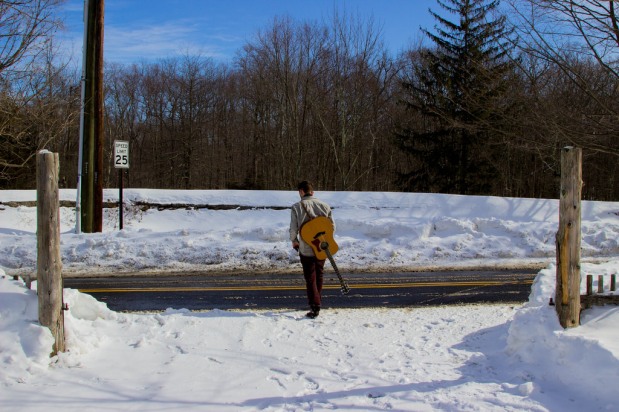I’m sitting in a building where my grandfather’s friends were killed. Or where their families hid while they died. Or where someone hid during one war that ravaged the city.
I’m also standing on a second-floor patio in an old Jewish section of Budapest with a man named Stern who – without correction – denies the pot-marked balcony at his eco-friendly hostel was once hit by bullets. Neil Young is playing, my girlfriend won’t be surprised, and I spent all night talking about the dichotomy of good and evil with a man whose ancestors were slaughtered at Auschwitz – in a county where half the population still turns away when gyspsys are killed, so he says. Twenty-percent openly hate the jews, he says.
And I’m still sitting in a building with bullet holes and no heat with a bar in the backyard.
I’m drinking rose because I recognized the brand’s name matched that of a Hungarian soccer player. Even Stern says he’ll leave the county as soon as he can. Not to India, like his dread-locked business partners though. He doesn’t specify where.
Stern smiles more than anyone else I’ve met here, other that the three Montenegrins that left Budapest a day early because the people they met were only interested in wearing a generalized frown and “drinking coffee and talking” all night. We all talk about Hemingway and America and Hungary and Serbia and Capa. We let each other find one another – over a joint, and a tin-can beer – because there is freedom in the single hour we meet. Our rules do not apply, our society has no say in what is said, and we are honest.
Late at night, after the local bartenders have taken a few rounds themselves, the people seem more alive. They laugh around foosball tables, wearing Tommy Hilfiger white and red patches and thick-rimmed glasses and Native American prints.
“No one’s ever asked about it,” they say. “I don’t feel Communism at all.”
But five minutes into the city, there’s no denying the smell of cracked walls and old men in front of liquor stores at ten in the morning. But perhaps that’s the point – it doesn’t smell of communism, it smells of a group of people who – for however many years – have struggled live a dignified life.
For the oldest generations, the only understanding of life is their parent’s suffering, and their parent’s parent’s suffering. And their grandparent’s parent’s suffering. And sometimes they’ve fought against it, for five years or five weeks, and apparently, Stern tells me, that’s what makes them Hungarian.
When I was a child I once wrote a report about my Grandparent’s country. I read a book that told me Hungarians had experienced 1000 years of victory in defeat – that such an experience was fundamentally Hungarian. And in some ways, its understandably preferable to live with a dull dagger in your back, than to find yourself one day without a head in a palace.
Here, no one sits in the National castle anymore.



